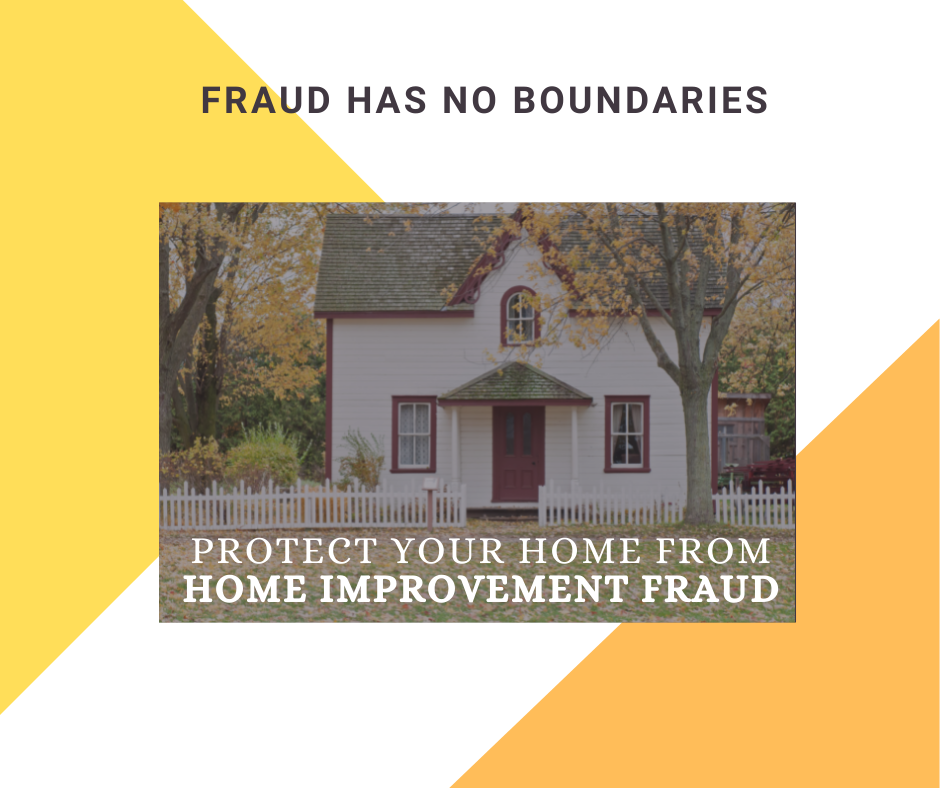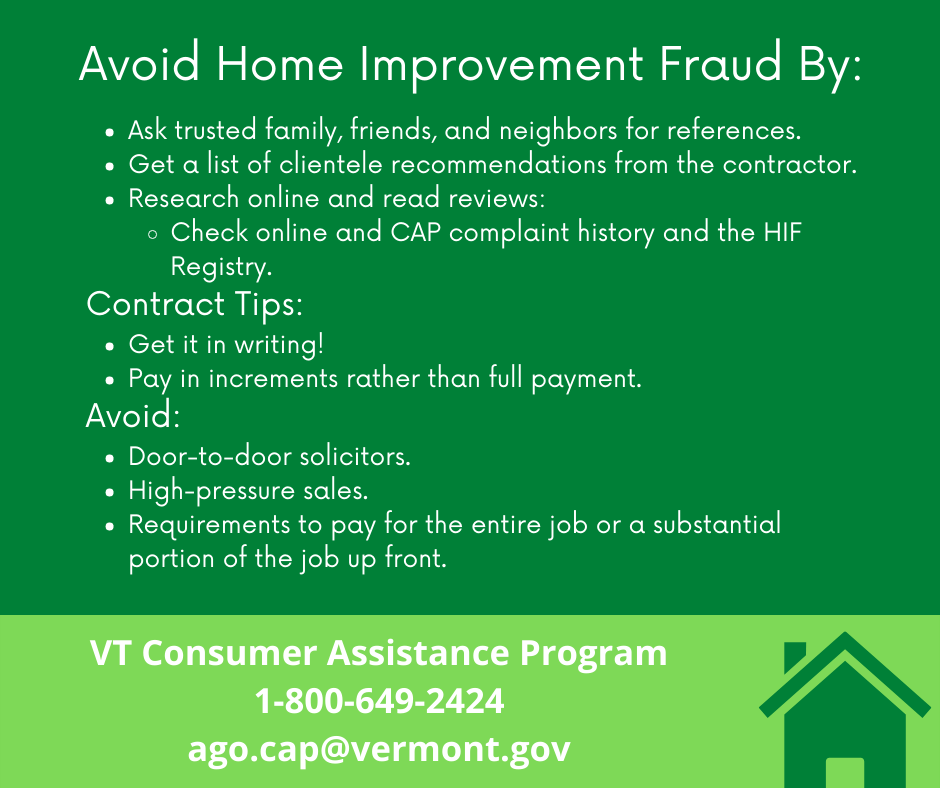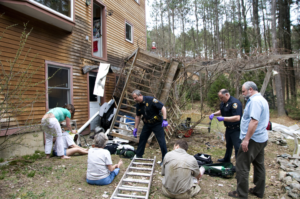
It can be difficult to get ahold of the right contractor for your next home improvement project. I am here to let you know that I want to help. I am Gabriel Taylor-Marsh, Home Improvement Specialist in the Vermont Attorney General’s Consumer Assistance Program.
I share important information every day to help homeowners and contractors throughout the home improvement process, whether there is a question about steps to take before hiring a contractor, or when inquiries arise from a contractor about their in-state registration requirements. I am also here when problems arise and provide telephonic/letter complaint mediation between homeowner and business parties.
In short, I want you to have a great home repair experience. If you are getting ready to have work done on your home, there are things you can do now to find and then hire a contractor. Follow the below checklist and visit our website to learn more: https://ago.vermont.gov/cap/home-improvements
HOme repair how-to checklist
1. Use Vermont contractor registries to make an informed decision. Contractors:
– Registered as a contractor with the Secretary of State agree to meet Vermont professional standards.
– On the Home Improvement Fraud Registry have been convicted of home improvement fraud.
2. Ask for recommendations from your community – friends, neighbors, family, co-workers.
3. Once you identify a contractor you are considering for your project, do more research.
– Lookup complaint history online, using the name of the contractor and “scam” or “complaint” in your search.
– Contact the Consumer Assistance Program (CAP) and ask if they have complaints filed against the contractor you are considering, the timeframe and the nature of the complaints.
– Review Better Business Bureau complaint history.
4. Ask the contractor to show you their active registration and insurance policy.
5. Get quotes from 2-3 other reputable contractors. Quotes should include the expected payment timeline (ideally with a deposit of no more than 10-30%) and ask for references from prior jobs.
6. Make sure all project expectations are in writing; request a written contract or estimate and do not sign anything you do not agree with.
– DO NOT pay all at once! Request an invoice and offer to pay at completion, by installment, or with a reasonable down payment for labor and materials.
Once hired, keep track of all invoices, bills and communication between you and your contractor.
Please reach out to me directly with any questions you may have: https://ago.vermont.gov/home-improvement-specialist-bio



